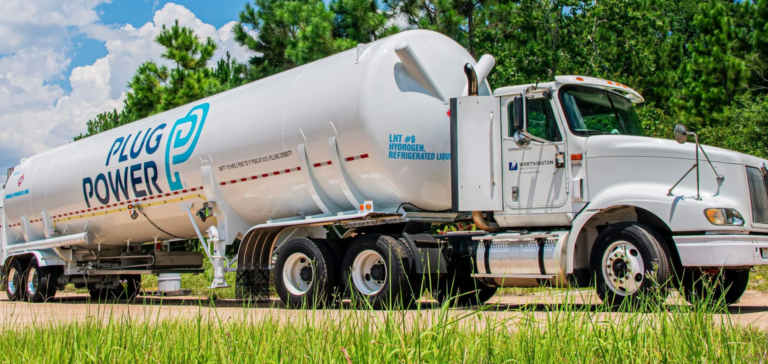Plug Power signs renewable hydrogen supply contract with Amazon. This contract provides for the supply of liquid renewable hydrogen starting in 2025. This is to facilitate the decarbonization of Amazon’s operations.
In fact, Amazon is targeting Net Zero by 2040. The agreement with Plug Power will allow us to meet this commitment, made in the framework of the Climate Pledge.
Kara Hurst, vice president of sustainability at Amazon, states:
“Amazon is proud to be an early adopter of renewable hydrogen given its potential to decarbonize hard-to-decarbonize sectors like long-haul trucking, aviation and shipping.”
The potential of renewable hydrogen
The agreement signed involves Plug supplying 10,950 tons of renewable hydrogen per year to Amazon. In addition, this partnership represents a growth opportunity for Plug. In addition to strong economic growth, this allows the construction of an end-to-end renewable hydrogen production system. Also, the company will be able to provide certified integrated hydrogen solutions at the request of its customers.
It also opens the way for the development of certain technologies as Andy Marsh, CEO of Plug, says. He sees an opportunity to test other hydrogen applications. Fuel cell power plants are also a developing technology. The latter would be able to power Amazon’s buildings.
Plug Power, perceiving the potential of renewable hydrogen, is setting up targets. In fact, the company is targeting hydrogen production of 70 tons per day by the end of 2022. In addition, it wishes to expand its collaboration possibilities with potential clients.
Plug Power wants to expand further
By collaborating with Amazon, it is consolidating its commitment to helping its customers achieve their business goals while decarbonizing the economy. The opportunity that this partnership provides also has an impact on its global reach. Plug Power aims at creating a renewable hydrogen ecosystem across the globe.
In addition, it creates the first commercially viable hydrogen fuel cell market. It has deployed more than 50,000 such systems and more than 165 refueling stations.
In order to satisfy all its customers, it is also developing a gigafactory producing electrolysers and fuel cells. These are expected to produce approximately 500 tons of renewable hydrogen per day by 2025.






















